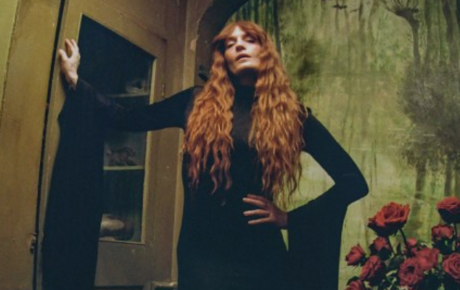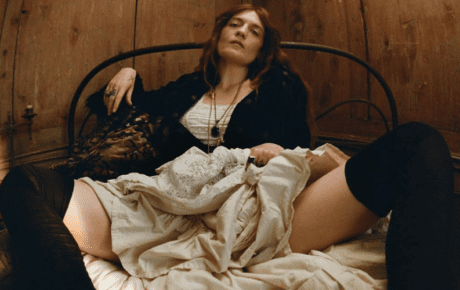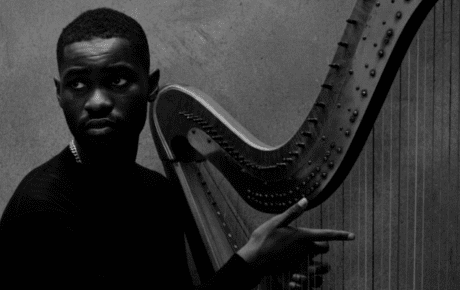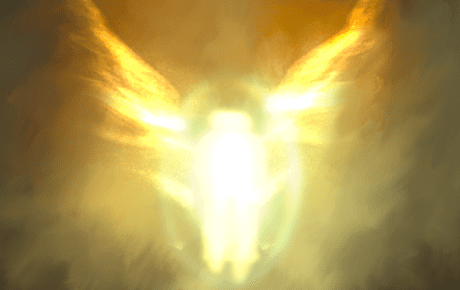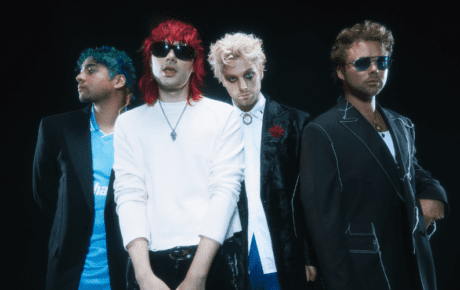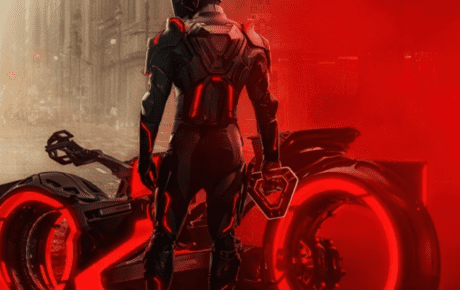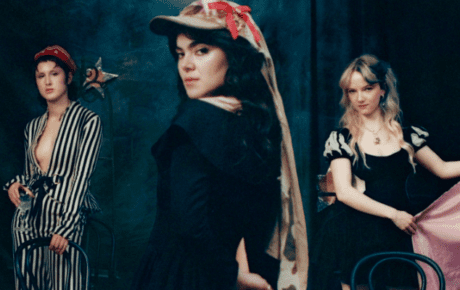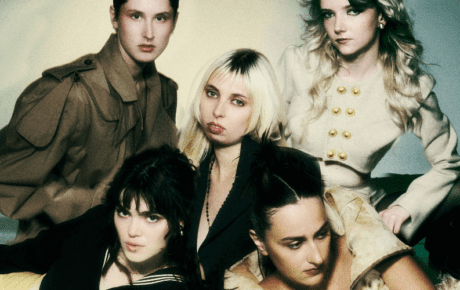Warning: Spoilers Ahead
I’ll be the first person to admit I had reservations about the Wicked movie. I grew up loving musical theatre so I wondered how the musical could be outperformed. But I will now be the first to say— if you have a similar train of thought, you have nothing to worry about.
Wicked is the best stage-to-screen adaptation to be released in years. With an ensemble cast comprised of Cynthia Erivo, Ariana Grande, Jonathan Bailey, Jeff Goldblum, and more, every cast member shines in their respective roles. Even those who are not already familiar with the storyline will find it difficult not to sing along.
For those who are unfamiliar, Wicked is inspired by the 1995 novel Wicked: The Life & Times of the Wicked Witch of the West. Later, it became the award-winning musical, again titled Wicked. The original cast starred Idina Menzel as Elphaba and Kristen Chenoweth as Glinda—a now-iconic pairing adored by fans worldwide. Both original actresses star in the ‘One Short Day’ sequence in the new film, which takes place as Glinda and Elphaba arrive in the Emerald City to greet the Wizard. It’s a small but significant Easter egg, as each dances excitedly with their successor.
It’s an apt time for Wicked to come out, as many of the themes are both universal and currently relevant. The narrative tackles otherness, corrupt leadership, and the demonisation of difference. Wicked could even be the Barbie of this year, promising mystical escapism in its flurry of pink and green. But realistically, the undertones are much darker.
Many wondered if Wicked being split into 2 parts made sense (the film’s first half is longer than the Broadway show’s entirety) but it undoubtedly works. John M. Chu has repeatedly stated his reasoning—he didn’t want to cut any of the critical songs or not do justice to the narrative. After seeing it, he was right. If songs were removed, crucial information would be lost to the audience. Long-time fans might have been able to fill in the gaps but newcomers may have been left confused. It was a risk and one that’s paid off. Of course, it does mean we have to wait until November 2025 for Part 2—How will we manage?
Grande and Erivo both shine and they are supremely well-cast in these roles. It’s a dream role for Grande, who has openly talked about her admiration for the musical. And Erivo’s casting is immaculate. She’s not only powerfully emotional as Elphaba, adding several small but heightened inflections to the character, but her identity as both a queer and black woman adds weight.
Bailey is also a standout — did anyone else know he could sing before this? He brings excitement and a cheeky flair to the upbeat ‘Dancing Through Life,’ while simultaneously hinting at the contemplative character that lies beneath. ‘Dancing Through Life’ is dizzyingly complex and brilliant, and Bailey nails it. The fact it’s a 9-minute song just adds to its impressiveness (Taylor Swift, who)!
Audiences also meet the scheming, power-hungry Madam Morrible, played effortlessly by Michelle Yeoh. Yeoh has dazzled in recent years with her projects, including Crazy Rich Asians and the wacky Everything Everywhere All At Once. And Morrible is no exception. Despite Yeoh’s concern about her ability to sing live on set, she does impress. Morrible’s arc in the second half only gets more intense, so it will be exciting to see what she brings to Part 2.
And how can we forget that the Wicked film is the first to authentically portray Nessarose, Elphaba’s sister. Marissa Bode plays her (her film debut, no less) and she plays Nessarose with exquisite depth. It’s difficult not to feel sympathetic for the character in Part 1—even though she barely defends Elphaba or stands up for her in difficult situations. For those aware, Nessarose’s character is about to become far more significant, and we urge you to remember her.
Every musical sequence in the film adds so much to the overall storyline, yet some songs outshine others. From the moment the film opens, it’s next level. As the Ozians celebrated the death of Elphaba with the joyous ‘No One Mourns the Wicked’, theatre kids everywhere rejoice in time.
Elphaba’s future is foreshadowed in the full-of-optimism ‘The Wizard & I’, and is the first example of Erivo’s singing talent. Considering the opening song is a celebration of her death, the lyric ‘There will be a celebration throughout Oz all to do with me’ becomes an eerie prophecy. Even as Chu uses wide shots to lessen our connection to the character, her acting still makes us believe. She is innocent here, powerful in her conviction that her dream will come true.
‘Popular’ is also an obvious standout. The girls have just connected at the Ozdust ballroom during a moving, emotional sequence in which Glinda and Elphaba unite on the dancefloor. Grande’s excitement at transforming Elphaba while also acknowledging her unstoppable position as queen bee is both ironic and sweet. This is Grande’s standout moment during the film. Her chemistry with Erivo is undeniable, and her extensive vocal range is on full display. This is the moment any doubt vanishes – these two were destined to play these parts. Their blossoming bond during ‘Popular’ and its preceding scenes show how capable each is of portraying anger and love from each perspective for three hours.
The relationship between Fiyero and Elphaba is hinted in the wistful ‘I’m Not That Girl’, while Peter Dinklage is part of the haunting ‘Something Bad.’ It seems Erivo and Grande steal the show whether they’re performing alone or with others.
Jeff Goldblum is also fantastic as the Wizard in ‘A Sentimental Man.’ Throughout Wicked’s early narrative, Elphaba idolises the Wizard, considering him to be ‘all-powerful.’ However, Goldblum plays the ‘true’ Wizard incredibly aptly—he simply has the illusion of power. Unlike Madam Morrible, the character of the Wizard has been around since the original 1900 creation — big shoes for Goldblum to fill. He nails it, coming off unapologetic yet embarrassed when his scheme is exposed by Elphaba. He undoubtedly makes the Wizard his own, professing in a recent interview that he wanted his version to be distinct.
The ending’s ‘Defying Gravity’ is an incredibly powerful hit. Erivo assuredly steps into her power, accurately nailing the song’s massive notes as she soars over the Emerald City. It’s the beginning of her descent into ‘wickedness’ in the eyes of Ozians, with Madam Morrible not helping matters. Her weather speciality (referenced between ‘I’m Not That Girl’ and ‘One Short Day’), further increases the stakes — she turns the sky to storms, convincing the citizens below of Elphaba’s wicked nature.
By the time the film ends (after ‘Defying Gravity’ to be specific), it’s easy to fall in love with the whole cast and the expansive narrative. Films like this are rare. To have Wicked in that list is truly an honour of Ozian proportions.
Could Wicked, with its scale, innovative cinematography, and casting somehow even be pulled off as a standalone film? This reviewer (and theatre fan) thinks so. The music screamed Oscar-winning, and it almost feels like you’re back watching the magic that Broadway first delivered to us. November 2025 simply cannot come fast enough—someone please take us back to Oz ASAP!

